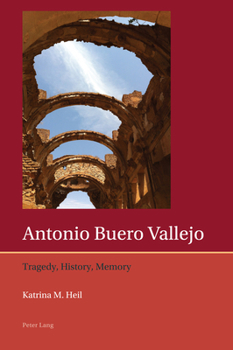Antonio Buero Vallejo: Tragedy, History, Memory
In this remarkable study, Katrina Heil brilliantly highlights how Buero's plays serve as a medium for the Spanish audience to process traumatic memory and come to terms with the past. The book successfully offers a fresh perspective on Buero's theater, acknowledging his pivotal role as a precursor of historical memory activism during Franco's dictatorship, while also shedding light on his enduring influence on contemporary dramatists of the twenty-first century.
(Yenisei Montes de Oca, Associate Professor of Spanish, James Madison University)
This book explores Antonio Buero Vallejo's use of the theater for historical memory activism and the role this function had in his formation as a tragedian. Buero's early tragedies counter the assumption that Spaniards have only recently taken up the issue of recuperating historical memory in order to process the collective trauma of the Spanish Civil War and Franco dictatorship. Buero's theory of tragedy, which combines an Unamunian existentialist conception of the tragic with an Aristotelian understanding of tragic catharsis, demands personal and historical authenticity while simultaneously allowing for the healing of trauma. While Buero's influence is rarely acknowledged in this regard, the legacy of Buerian tragedy as an ideal form of memoria hist rica activism is seen in contemporary Civil War tragedies, which are appearing with increased frequency on the Spanish stage alongside the growth of the historical memory movement in Spanish culture and politics.





